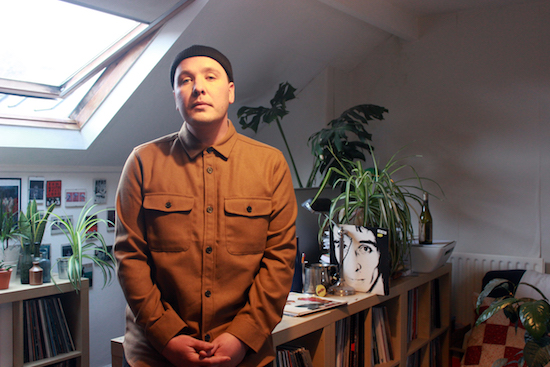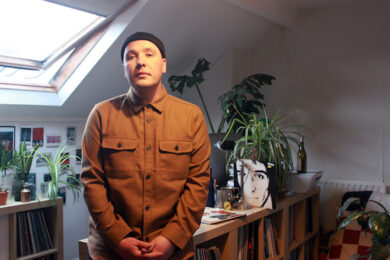Author portraits by Natasha Bright
People have some very strongly held beliefs about the roles of John Cale and Lou Reed. A few years ago, when interviewing Cabaret Voltaire’s Richard H Kirk, I lightheartedly made a Reed/Cale comparison between him and ex-Cabs member Stephen Mallinder due to their fractious yet potent creative relationship. It was met with a stern look, a furrowed brow and the reply, “Well it depends who’s who.” It turned out the idea of being painted as Cale in that partnership was deeply offensive, and of course Kirk would be Reed in any such scenario.
Similarly, when chatting with Mark E Smith about Stewart Lee’s ATP (where Cale pulled out last minute due to non-payment), The Fall frontman – a huge Reed fan – was derisive of Cale and his decision not to play. “It was getting to the point where I said, ‘I know some fucking John Cale songs, I’ll fucking do it’,” he told me. “I can do ‘Lady Godiva’s Operation’ – and better than him.” We went on to speak about the roles of Cale and Reed, and it was clear that there was really only one of those two names worth discussing as far as he was concerned. Even tQ’s own John Doran began this series with a piece that suggested the Velvet Underground were at their most potent and arresting after Cale had left.
See, people who love Reed have a lot invested in him. Author David Keenan, in his recent Baker’s Dozen feature, proclaimed: “Lou Reed is my God.” Spend some time perusing other artists’ entries in that series and you will see Reed’s name pop up time and time again, along with many similar proclamations about how his solo work changed lives. This is something that has filtered down through the history of music writing too; despite their antagonistic relationship it was obvious Lester Bangs thought the same of him all those decades ago. Reed’s name, for many, is still shorthand for rock deity. (Although, the names of Reed and Bangs will forever be linked in rock crit infamy, the writer actually claimed, in a 1978 article, to prefer the music of the Welshman and appeared live with him on stage at CBGB during the same year.)
When have you ever heard anyone declare Cale as their God? There’s a weight and a bluster that follows Reed, whereas with Cale there’s more of a gentle breeze. For many, Reed stands as a decadent and depraved embodiment of a kind of rock & roll figure that doesn’t exist any more. There’s a package that comes with Reed that is bigger than just his music.
Cale seems much more singularly defined by his output and despite the odd reissue here and there over the years, his solo work has never really drawn the kind of retrospective attention and focus that Reed’s has. Barely a year goes past without another reissue campaign for Reed or a new book out – be it Ezra Furman’s 33 1/3 on Transformer or another biography, the latest by Anthony DeCurtis.
Plus, you’re never far away from encountering a hardcore Reed fan loaded with an absurd argument that one of his perceived missteps, like, say, Mistrial, is actually some overlooked masterpiece, or how The Raven is his true magnum opus. In the last ten years I’ve read more words written about Reed’s Metallica collaboration album Lulu, and whether or not it’s one of the greatest misunderstood contributions to rock & roll history (or the opposing ‘actually it’s a toilet put to record’ argument), than I have for all of Cale’s solo albums combined.
I should add at this stage that the point of this article isn’t to dunk on Reed. I love his music dearly and like every other clichéd music journalist he changed my life; his repeated presence here is simply as a familiar, foundational rock to weigh this discussion against. Nor is this an argument about who is better – they are both beautiful colours from the same fucked-up rainbow.
But, have you ever heard someon…



